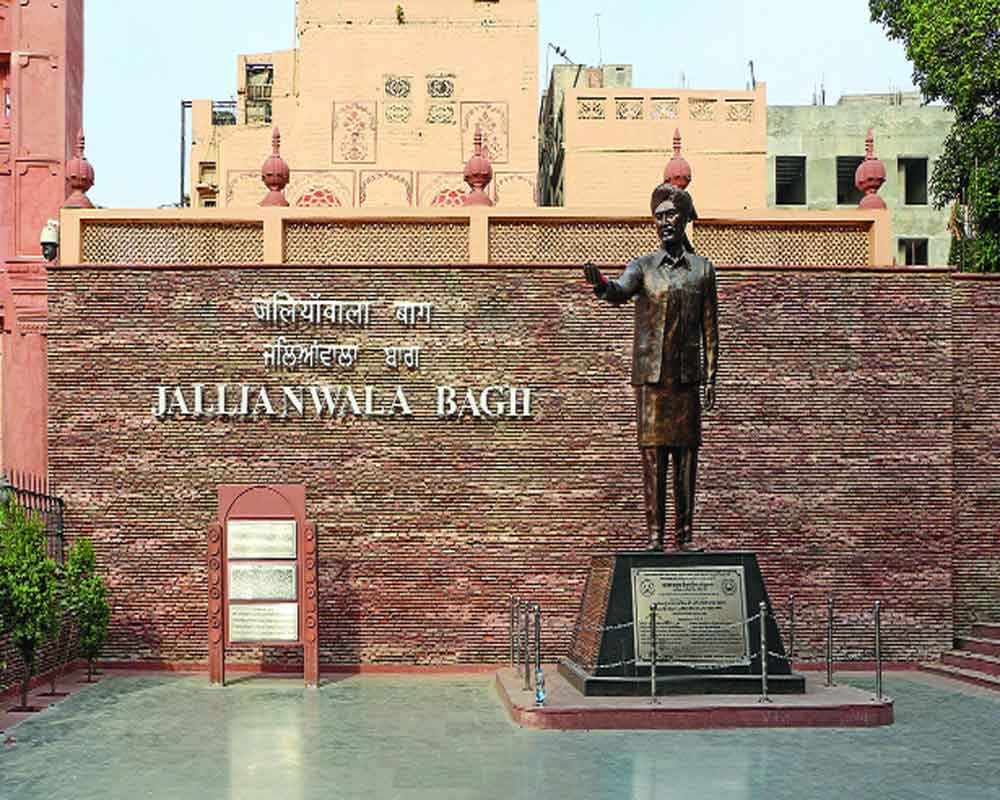As the nation commemorates the 105th anniversary of the Jallianwala Bagh massacre, it reaffirms its commitment to justice, equality and nonviolence
Somen Sengupta, in his piece “Jallianwala Bagh revisited” published in his paper’s April 10, 2022 edition on its 103rd anniversary, reflected, “This incident alone serves as a damning testament to the collective atrocity of firing upon an unarmed gathering.” The actual number of casualties likely far exceeded the reported count. Somen further notes, “Dyer, facing the Hunter Commission in Lahore, ultimately lost his position with a measure of reprimand.”
April 13, 2024, marks the 105th anniversary of this tragic episode. It was amidst the auspicious Baisakhi celebrations on April 13, 1919, that Punjab was engulfed in tragedy, as around 20,000 rural attendees congregated at Jallianwala Bagh, oblivious to the impending horror. Durgadas Vaidya, editor of Waqt newspaper, addressed the peaceful protesters who were voicing opposition to the oppressive Rowlatt Act, passed on March 21, 1919.
The non-violent Satyagraha led by Mahatma Gandhi against the Act on April 6, 1919, culminated in his arrest on April 9 near Delhi, along with Saifuddin Kitchlew and Dr. Satyapal. The unjust repercussions sparked widespread anger, leading to violent clashes, including the tragic killing of nearly 30 Indians on April 10 by police gunfire as they sought to cross Hall Gate Bridge into the civil lines.
However, at Jallianwala Bagh, the scene turned chaotic as Brigadier-General Reginald (‘Rex’) Dyer arrived unannounced. Dyer, with meticulous planning, ordered troops to open fire on the unarmed crowd, plunging the gathering into chaos and leaving an indelible mark on history and the land. The bullet-riddled walls and the well, where desperate individuals sought refuge, continue to evoke shudders.
The Jallianwala Bagh massacre claimed the lives of 379 individuals, with numerous others sustaining injuries. The relentless firing of 1,650 rounds by British troops under Dyer’s command resulted in a bloodbath. Moreover, Dyer’s imposition of a curfew post-massacre exacerbated the tragedy, denying grieving families access to their deceased loved ones. The scale of suppression delayed the event’s revelation in the media, only brought to light by courageous journalists like B G Horniman of Bombay Chronicle and later Amrita Bazar Patrika, prompting global leaders like Lenin to express solidarity with the suffering Indian populace.
Professor K L Tuteja, a historian at Kurukshetra University, describes the massacre as a pivotal moment that drew sharp criticism both in England and India. Winston Churchill labeled it a ‘monstrous event, an event which stands in singular and sinister isolation,’ while former Prime Minister Herbert Asquith deemed it ‘One of the worst outrages in the whole of history.’ These reactions underscored the profound shock and dismay even among those who believed in the justness of British rule in India. Within India, the massacre left a deep scar, with many viewing it as an unparalleled atrocity. Mahatma Gandhi’s poignant response encapsulated the sentiment: “We do not seek to punish Dyer. We harbor no thirst for vengeance. We seek to transform the system that bred Dyer.” The massacre significantly influenced the trajectory of the anti-imperialist struggle, bolstering forces that challenged British rule in India.
Prominent figures like Gandhi, Rabindranath Tagore, Jawaharlal Nehru and Annie Besant vehemently condemned the massacre, advocating for peaceful resistance against British colonial oppression. Gandhi relinquished the title of ‘Kaiser-i-Hind,’ bestowed by the British, while Tagore renounced his knighthood in protest. Nehru denounced it as a ‘monstrous crime,’ emphasising the nation’s duty to honour those who sacrificed their lives for political freedom.
(The writer is Programme Executive, Gandhi Smriti and Darshan Samiti; views are personal)


























